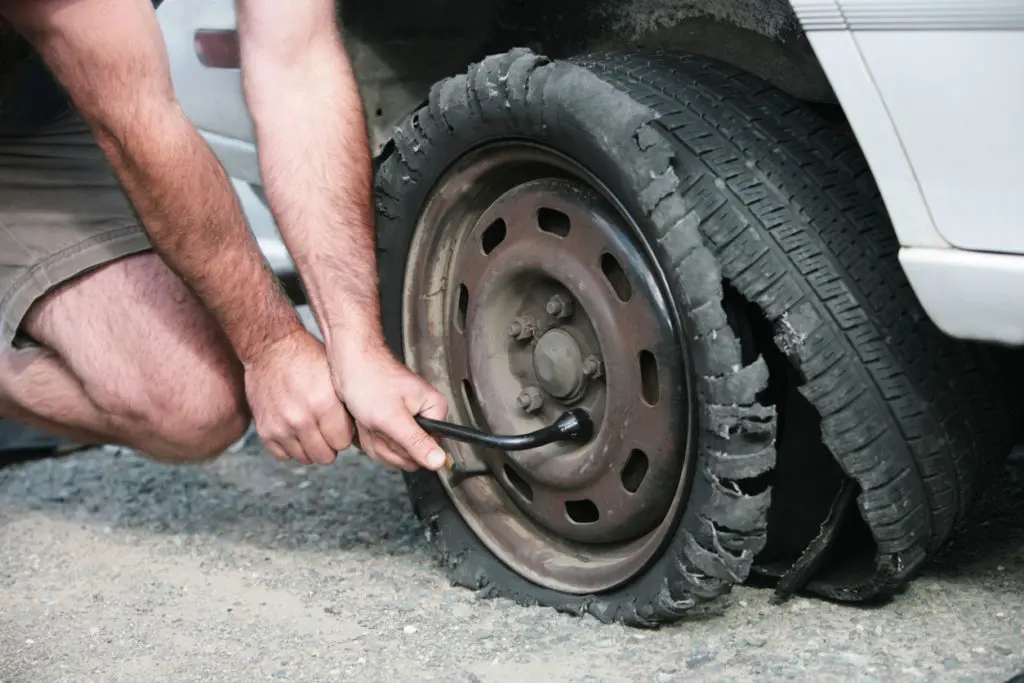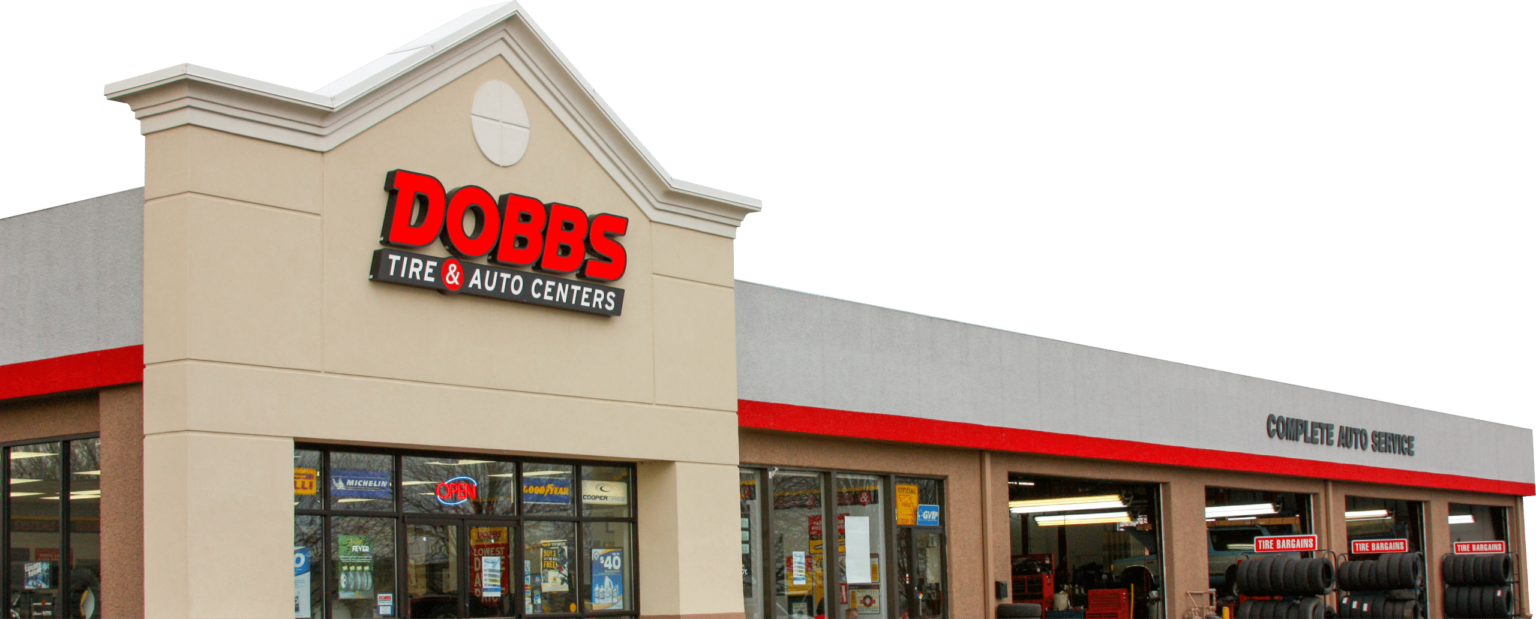How to Drive Through a Tire Blowout
Your critical link to the road, four tires are what keep you moving from place to place comfortably and safely. With a good alignment, tight suspension and steering components, and proper tire pressure, tires generally last 20,000 to 80,000 miles. If a tire fails, it may do so catastrophically, suddenly losing all pressure. The dramatic loss of pressure, called a “tire blowout,” can lead to loss of vehicle control.
The NHTSA (National Highway Traffic Safety Administration) estimates that tire blowouts cause more than 78,000 accidents and 400 deaths every year, and this doesn’t include the untold number of tire blowouts that don’t cause accidents or injury. Still, spend time on practically any highway and you’re bound to see proof that tire blowouts happen, the separated tread of a tire or someone changing a blown tire for the spare.
What Causes Tire Blowout?
In general, tires are both sturdy and flexible. They need to be, to manage the forces of acceleration, deceleration, and turning, in environments cold, hot, wet, dry, and slippery. To maintain this level of capability, proper tire pressure must be maintained. Too much pressure and you could suffer abnormal tire wear. Too little pressure, and you’d suffer poor fuel economy and poor traction. Lower pressure, still, and you could suffer a tire blowout. The Tire Pressure Monitoring System (TPMS) was developed and mandated by law for exactly these reasons.
Low-pressure tire blowouts, the most common, occur because the tire overheats. Low tire pressure causes the tires to flex more, creating heat. Eventually, so much heat is created that the rubber starts to deform. The sidewalls can no longer support the air pressure inside the tire and vehicle load, blowing out the tire sidewalls in an instant. The tread may even separate from the rest of the tire. The instant loss of traction and height could even cause the driver to lose control of the vehicle.
Additionally, other factors could cause a tire blowout, such as a pothole or curb hit, a defective or damaged tire, or severe vehicle overloading. Even inflated properly, tires are susceptible to damage from extraordinary circumstances. An impact with a pothole or curb could cause a leak large enough to let all air pressure escape instantly. Even properly inflated, a defective tire may blow out if its structure is too weak to support it. Most car tires can handle a minimum load of around 1,000 pounds, which includes the vehicle, fuel, driver, passengers, and luggage. Excessive loading, perhaps towing a heavy trailer, could lead to a tire blowout if the tires aren’t rated for such loads.
How Do You Prevent Tire Blowout?
Aside from regular inspections, driving carefully, and avoiding excessive loads, the single most-effective thing you can do to prevent tire blowouts is to check and adjust your tire pressures regularly. This is important, even on TPMS-equipped vehicles, as studies have shown that TPMS is only about 55% effective at keeping tires inflated properly. Most failures, the other 45%, are related to ignorance or negligence on the part of the driver.
Once a week, spending about 10 minutes looking at your tires could save you from a tire blowout in the future. Check the tires for damage, such as cuts, punctures, or dry rot. If you have any questions regarding the condition of your tires, be sure to check with your local trusted auto repair technician. Using a tire pressure gauge and tire inflator, perhaps at your local gas station or a portable one – even a bicycle pump will do – check and adjust your tire pressure to the recommended pressure. You can find this information on the Tire & Loading sticker, on the driver’s door jamb, or in the owner’s manual.
If Your Tire Blows Out, What Do You Do?
That all being said, there are some times when all the preparation in the world can’t prevent a tire blowout from occurring. It just happens. If you want to prevent an accident, even in the case of a tire blowout, your best course of action could save yours or someone else’s life!
Preparation – Aside from checking and adjusting tire pressures regularly, be a responsible driver. Keep both hands on the steering wheel, always wear your seatbelt, and do your best to limit distractions. An undistracted driver with both hands on the wheel is far more readily able to react to any sudden change in traffic or road conditions, such as avoiding a pothole, swerving around an animal, or driving through a tire blowout.
Steady as She Goes – *BOOM* You just realize one of your tires has blown out. Resist the urge to slam on the brakes and swerve straight to the breakdown lane! Instead, simply let off the accelerator or cancel cruise control. The normal drag of the car and the friction of the blown-out tire will slow you down gradually. At the same time, gently counter-steer to maintain your intended direction of travel.
Pull Over Safely – As the car slows and you have control over it, signal to get off the travel lanes and into the breakdown lane. Don’t worry about damaging tires or wheels – the damage is already done – your own safety cannot be priced. Use the brakes to gradually decelerate to a stop, as far off the road as you can manage. Set your four-way flashers and call a tow truck or replace the blowout with the spare tire.
A Special Note on Truck Tires – Tens of thousands of trucks pass through St. Louis highways every day, and truck tire blowouts can be deadly for those that share the road with them. While car tires rarely weigh over 30 pounds, truck and trailer tires can weigh over 100 pounds. A truck tire blowout or tread separation could send a chunk of rubber flying, and no windshield can stop forty or fifty pounds of rubber at 60 mph. Always maintain your distance from trucks to give yourself time and room to react.
Dobbs Tire & Auto Centers is Here to Help
Since 1976, Dobbs Tire & Auto Centers has been serving the St. Louis, MO, area. From one location, established forty years ago, to 50 locations today, there is sure to be a location convenient to your home, work, or school. At Dobbs Tire & Auto Centers, we employ ASE-Certified auto repair technicians, specializing in every area of your automobile, from tires, steering, and suspension, to engine, transmission, and diagnostics. Stop in or call us today if you have any concerns about your tires.

